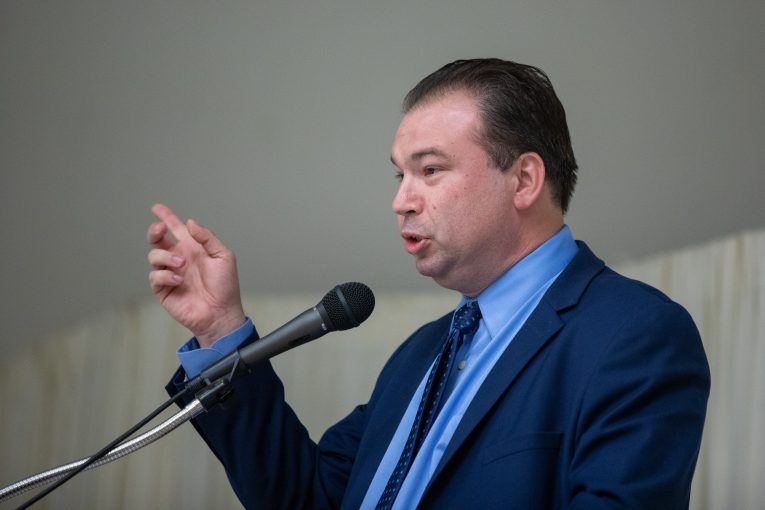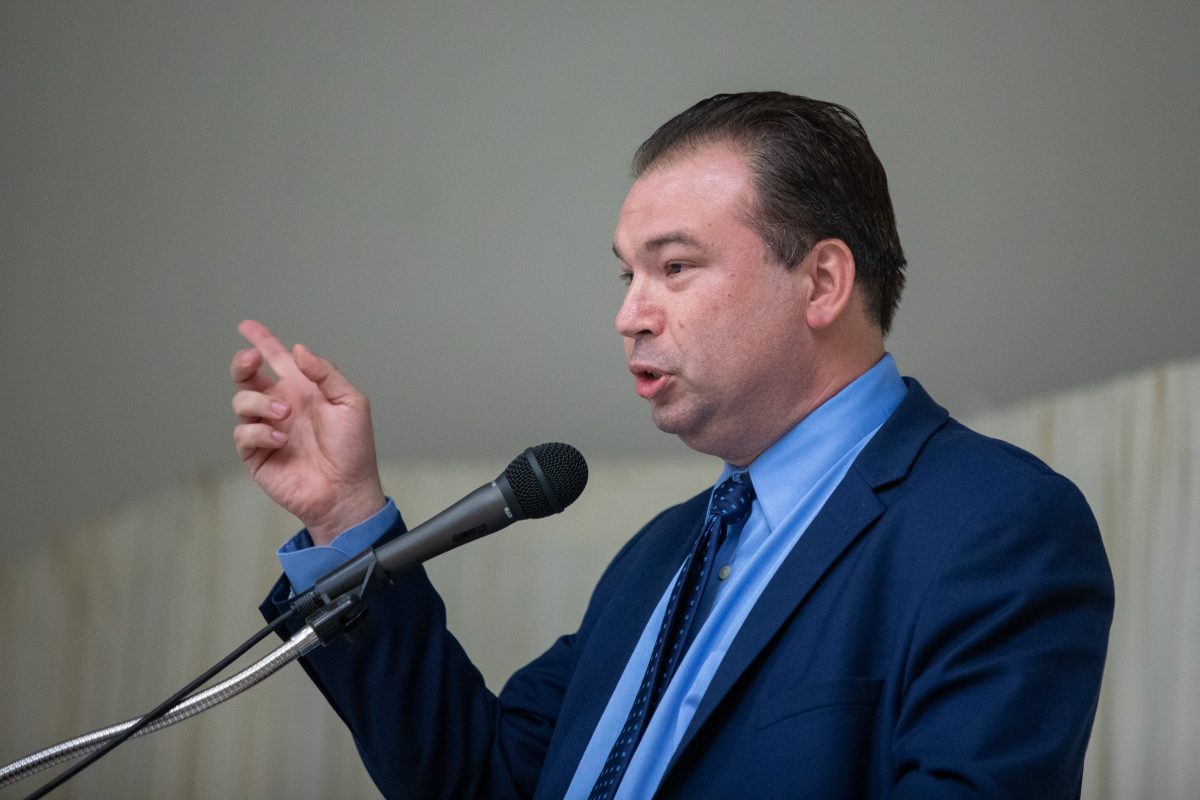

US Supreme Court Osborne Decision Negatively Influences First New York State Case
By Jeffrey Deskovic
“Looking back” will feature reprints of articles that Jeff previously wrote while a columnist at The Westchester Guardian, which encompass topics that are applicable here in CA as well as across the country and not simply applicable to NY.
In 2009 the U.S. Supreme Court decided Osborne v. Alaska, in a 5 to 4 holding, “Prisoners do not have a Constitutional Right to post-conviction DNA testing.” Each state, it said, should decide the question of DNA access for itself. In the July 2, 2009, issue of The Westchester Guardian, I wrote an in-depth review and criticism of that decision.
For those that may have missed that issue, a quick review is in order. Osborne had been convicted of rape. The victim testified that the perpetrator removed a condom after the rape, and this condom, filled with seminal fluid, was recovered at the crime scene. Before the trial, Osborne’s attorney refused to seek DNA testing out of fear that the results would incriminate his client. This, however, was in contradiction to Osborne’s explicit requests. Osborne was convicted, and during the post-conviction process, represented by a different attorney, sought DNA testing, but Alaskan state prosecutors successfully blocked the testing, arguing, “The request for testing is frivolous in light of the overwhelming evidence of guilt, that it would open the floodgates of litigation, and that the public has a legitimate right to finality.”
In the above referenced prior Guardian article, I argued how such a ruling is inconsistent with correcting wrongful convictions. That point is made even more conspicuous by the fact that, prior to fighting Osborne at the Supreme Court, the prosecutors publicly conceded, despite continuing to fight against him, that permitting the testing would definitively determine guilt or innocence. At the time of the case, Alaska was one of the few states that did not have a statute granting DNA testing.
The negative outcome of the Osborne decision has now, for the first time, impacted a case in New York. Frank McKithen was convicted in 1993 by a Queens jury of attempted murder, assault, reckless endangerment and intimidation of a victim or witness. According to a Nov. 23, 2010, article in the New York Law Journal, the facts of the case are, “One night in the summer of 1992, she was watching television with a friend when Mr. McKithen snuck into their home and confronted her about her decision to testify against him before a grand jury regarding an earlier incident. She tried to run, she said, but he stabbed her in the back with a knife.” McKithen sought DNA testing, arguing that the test would show that blood on the knife did not belong to her and that her story was therefore false.
McKithen, thus far incarcerated for 18 years, had exhausted every avenue of appeal, prior to being granted the right to testing by Eastern District Judge Gleeson, whose holding read, “I conclude that the Due Process Clause of the Fourteenth Amendment grants a convicted offender access to physical evidence for the purpose of DNA testing if it can be performed with negligible cost to the state and exculpatory results would undermine confidence in the outcome of trial.”
Queens District Attorney Richard Brown’s office, whose office has been successfully sued twice in unrelated cases involving prosecutorial misconduct, appealed Gleeson’s decision to the 2nd Circuit. While the appeal was pending, the US Supreme Court decided Osborne. The Circuit Court, while praising Gleeson’s decision, said,
“The District Court produced an opinion notable for its careful attention to precedent and for the quality of its reasoning, which proved to be intricate and, in many ways, persuasive,” but nevertheless went on to say, “While this appeal was pending, the Supreme Court decided [Osborne], which addressed the same question but reached an opposing result…Osborne controls the disposition of  this appeal and compels the conclusion that plaintiff-appellee was not entitled to relief under 42 U.S.C. §1983 because he has no procedural due process right to receive evidence for the purpose of post-conviction DNA testing. The Osborne Court was clear that the lower federal courts are to defer to the judgment of state legislatures concerning the process due prisoners seeking evidence for their state court post-conviction actions. Federal courts may upset a State’s post-conviction relief procedures only if they are fundamentally inadequate to vindicate the substantive rights provided.’” New York’s procedures, the Judge wrote, do not “sink to that level.”
this appeal and compels the conclusion that plaintiff-appellee was not entitled to relief under 42 U.S.C. §1983 because he has no procedural due process right to receive evidence for the purpose of post-conviction DNA testing. The Osborne Court was clear that the lower federal courts are to defer to the judgment of state legislatures concerning the process due prisoners seeking evidence for their state court post-conviction actions. Federal courts may upset a State’s post-conviction relief procedures only if they are fundamentally inadequate to vindicate the substantive rights provided.’” New York’s procedures, the Judge wrote, do not “sink to that level.”
Since it is extremely unlikely that the U.S. Supreme Court will agree to grant McKithen permission to appeal to them, or that even if permission were granted that the Court will so soon overrule its own precedent, McKithen is out of judicial options.
From where I stand, the Queens District Attorney’s Office is taking an unreasonable position. There is nothing to be lost by allowing the testing; either it will show that McKithen is guilty, in which case the question of innocence will permanently put to bed, or it will show his innocence.
This case illustrates the urgent need for the New York State Legislature to deal with the void in state law regarding the right for post-conviction testing in light of the implications of Osborne. We have some legislation on the books, which, though inadequate under the circumstances, already indicates prior interest by the legislature. Now that legislation needs to be bolstered. Otherwise, there undoubtedly will be other defendants who will be denied DNA testing, and, as a society, we will lack the finality that comes with knowing, to a scientific certainty, whether in fact, they are guilty of the crime for which they are incarcerated.
Just think: None of the 27 DNA proven wrongful convictions, my own case amongst them, out of the nation’s 261, would have taken place had the defendants been denied testing. Given DNA’s power to make an absolute statement, it would be shameful not to provide the enabling legislation guaranteeing access to testing. Furthermore, it would ignore the cruelty of past injustices in which defendants remained incarcerated longer than necessary as a result of being denied testing.
“Jeffrey Deskovic, Esq, MA, is an internationally recognized wrongful conviction expert and founder of The Jeffrey Deskovic Foundation for Justice, which has freed 9 wrongfully convicted people and helped pass 3 laws aimed at preventing wrongful conviction. Jeff is an advisory board member of It Could Happen To You, which has chapters in CA, NY, and PA. He serves on the Global Advisory Council for Restorative Justice International, and is a sometimes co-host and co-producer of the show, “360 Degrees of Success.” Jeff was exonerated after 16 years in prison-from age 17-32- before DNA exonerated him and identified the actual perpetrator. A short documentary about his life is entitled “Conviction“, and episode 1 of his story in Virtual Reality is called, “Once Upon A Time In Peekskill“. Jeff has a Masters Degree from the John Jay College of Criminal Justice, with his thesis written on wrongful conviction causes and reforms needed to address them, and a law degree from the Elisabeth Haub School of Law at Pace University. Jeff is now a practicing attorney.
